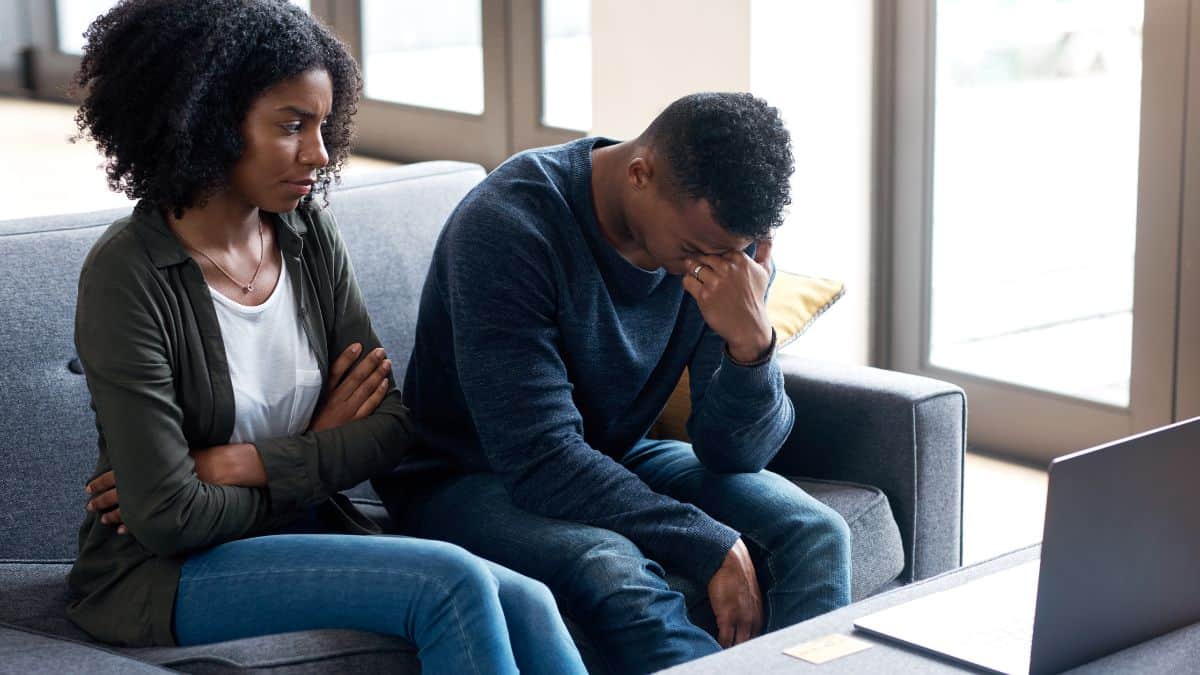Regrets are inevitable in life, and sometimes it feels like that goes double for money regrets. Buyer’s remorse, that itching feeling that you bought something you shouldn’t have, finds us all eventually. And when it does, it can be surprisingly uncomfortable.
Depending on the situation, a few different psychological levers can influence buyer’s remorse. However, if you learn to recognize those levers and take conscious steps toward more intentional choices, you can steadily chip away at the power of this negative feeling.
Why Do We Feel Buyer’s Remorse?
There are many reasons we do something and later regret it. Sometimes we weren’t thinking clearly when we made that choice. Other times, we made the right decision, but how we’re feeling now doesn’t align with how we expected we would.
Buyer’s remorse comes from a mix of psychological factors. Of course, they are not all present every time, but the regret we feel after a purchase often results from more than one of these causes.
How Dopamine Plays Games With Your Decisions
Understanding buyer’s remorse starts with a tricky little brain chemical called dopamine. Despite being a common topic in pop psychology, dopamine is a widely misunderstood molecule.
If you’ve heard of dopamine before, you’ve likely heard someone refer to it in the context of things like pleasure or reward. Many people think of dopamine as the brain’s way of rewarding us for things like eating foods we like or engaging in pleasurable activities.
This connection is partially accurate but also misleading.
We now know that dopamine has more of an effect on our pursuit of pleasure than on rewards themselves. In other words, it motivates us to chase things we think will make us feel good. Sometimes they do, sometimes they don’t, but this particular neurotransmitter can’t always tell the difference.
This effect often plays a role in our purchasing decisions. When we consider buying something, dopamine often yells in our heads that we must buy it because it will make us feel good. However, since dopamine always says the same thing and isn’t always right about it, we often follow its advice, only to find ourselves disappointed on the other side of the decision.
Post-Purchase Clarity
It may sound obvious, but it bears stating: you never regret a decision you haven’t made yet. When you make a choice, you have one set of thoughts and emotions leading up to the moment of the decision and a fresh perspective from that moment forward.
Before you decide to buy something, you must weigh a mix of factors, including dopamine-driven motivation, against possible downsides such as cost.
After you complete the purchase, you have a new perspective. No longer relying on assumptions, optimism, or guesses, you can experience firsthand how that new thing makes you feel. If it meets or exceeds your expectations, you will most likely feel satisfied with your purchase.
However, if you feel buyer’s remorse, it means there is likely a gap between the promise you felt before buying and the actual experience you had after buying.
For instance, before buying a new toy, gadget, or tool, your feelings likely swirl around how fun, easy, or efficient it will make your life. Yet, if you buy that thing and it doesn’t live up to those expectations, you may run into buyer’s remorse. Dopamine’s alluring promise didn’t align with your objective experience, and disappointment is what remains.
Anxiety Surrounding Life Transitions
Buyer’s remorse can also originate as an outlet for bigger emotions we feel about certain life events.
Not all purchases involve exchanging a few dollars for goods or services and walking out with a receipt. Some, such as buying a home or car, equate to significant life changes. Big changes like these tend to bring big emotions:
- Excitement and optimism for new possibilities
- Frustration with unfamiliar obstacles
- Joy from a feeling of novelty and opportunity
- Worries about what could go wrong in the future
- Fatigue from managing new burdens
- Regret that you may have made the wrong decision
We occasionally go through shifts in life where things don’t look how they used to, and that’s not always easy. In some cases, buyer’s remorse can arise as a defense mechanism; we fantasize about traveling back to the moment before introducing this new turbulence.
Buyer’s remorse in these scenarios is complex. While it may signify legitimate regret, it isn’t always. Often, marching forward through these transitions reveals that we made the right decision, even if it had some uncomfortable stages at the beginning.
How to Prevent and Overcome Buyer’s Remorse
As always, it is crucial to remember that every emotion we have exists to help us, even the uncomfortable ones. Buyer’s remorse is no different. It is one tool in our emotional toolkit that tries to help us identify the negative consequences of our choices and make better choices in the future.
Like any negative emotion, it wouldn’t be in your best interest to avoid buyer’s remorse completely, even if such a thing were possible. Instead, we can reduce the uncomfortable grip this emotion has over us by learning to listen to it and make more intentional choices.
Question Your Purchases More Carefully
Your first line of defense against making purchases you regret is to exercise your conscious spending muscle. Of course, you can’t be 100% certain that every purchase is a good idea before you make it, but there’s a lot you can do to weed out the ones that aren’t.
One step you can take to significantly reduce purchases you later regret is to ask yourself some questions before buying, such as:
- How confident do you feel that this will be a good purchase?
- Do you feel any doubts or internal conflict?
- Have you thought about this purchase for a while, or is it a brand-new idea?
- Where did you get the idea for this purchase? Did you realize a want or need in your life, or did you see an ad, product placement, or sales pitch?
Psychologically, we have a lot working against us in avoiding impulse purchases, and retailers and salespeople know how to zero in on those weaknesses. However, by slowing down and looking a little more closely at those impulses, we can better understand them.
Asking questions like those above will not catch every impulse purchase, but they will help you identify many of them. Separating legitimate wants and needs from fleeting motivations can go a long way to highlight regrettable spending decisions before you make them.
Don’t Rule out Refunds
There are many purchasing decisions you cannot quickly reverse. For instance, the life transitions discussed above, like home buying and car purchases, are not usually things you can back out of after submitting a down payment. But for almost everything else, there are refunds.
While most regrets give the feeling of wishing you could go back and make a different decision, buyer’s remorse usually gives you that option.
Almost anything you buy at retail is eligible for a refund. Even if the merchant resists your request, your bank or credit card company may be able to help. So if you bought something that didn’t work as well, look as good, or bring you as much joy as you hoped, consider returning it for a refund.
It’s possible, though rare, that you return something for a refund and later realize you actually did want it. If that happens to you, you can always still rebuy it later. Just take an extra moment to ensure it’s what you want this time.
Reassess the Decision for Next Time
Buyer’s remorse is not something you will ever entirely remove from your life. Even as you reduce the frequency and impact with which you feel it, there will always be times when an impulsive spending decision sneaks through, and that’s okay.
When you experience buyer’s remorse, you can set yourself up for better success in the future by sitting with the emotion and listening to it.
A bit of introspection can go a long way. When you regret something you bought, take a few moments to assess how and why that happened. For example:
- What motivated you to buy it in the first place? What were you feeling at the time?
- Did you have doubts before buying? Were they accurate?
- How did the actual purchase differ from your expectations? In what ways did it come up short?
This process can help you step through the regret you’re feeling right now and reduce your likelihood of reencountering it next time. Every emotion is there to tell us something, and we can learn from it when we listen.
Money, Motivation, and Occasional Regret
Money is at the center of many of the decisions we make every day — how to make more of it, keep more of it, and where to spend it. Something that has so much influence on our lives is bound to inspire intense emotions sometimes, and one of those emotions is regret.
Buyer’s remorse is a phenomenon you can encounter after anything from first-time home buying to bringing home a new gadget from the mall. It isn’t a fun feeling, but it is a helpful one. If we learn to read this signal from our bodies and act accordingly, we can learn to make better choices with our money more consistently, avoiding buyer’s remorse more often than not.

